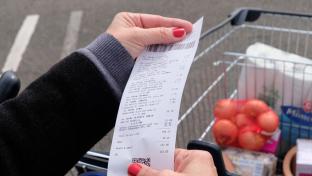Could Trump save the Canadian dairy industry?
The great Canadian dairy crisis is about to experience a new and interesting twist.
On the verge of Donald Trump's inauguration as the 45th President of the United States, some wonder whether he could bring about the end of Canada’s infatuation with dairy marketing boards.
Both during his campaign and after the election, Trump took aim mainly at China and Mexico for their perceived prejudicial trading tactics against America. Given that U.S. dairy groups are now calling on Trump to turn his sights on Canada, things may begin to change.
Let’s be honest, though: chances are, Trump may not even know about Canada’s supply management scheme. In his defense, however, once this scheme is understood, most people outside of Canada would assume such policies could only exist in poverty-stricken countries. Supply management is Canada’s highly protectionist quota system in the dairy industry.
The fundamental principle of supply management is to balance production and consumption, domestically. The dairy products that are imported to Canada are subject to incredibly high tariffs, sometimes exceeding 300%. Province-based marketing boards issue quotas so farmers can produce and distribute industrial milk for processing and consumption.
For years, Canadian dairy producers refused to admit that the system did not serve the dairy supply chain and consumers well. The strategy in the face of any criticism was to advocate and deflect. But since domestic milk prices were much higher than world market prices, processors started to import diafiltered milk from the United States. Now such an act would normally be illegal, but the product was imported under a different label, circumventing border rules and bypassing any tariffs. It lasted for a few years, thus creating a huge imbalance between milk produced in Canada and our domestic demand. The milk which was normally sold to make cheese, yogurt or other dairy products was slowly being replaced by American diafiltered milk.
In the height of the crisis, in 2015, some reports suggested Canadian processors were buying more than $200 million CDN worth of American milk. In April 2016, Ontario reacted by creating a new class of industrial milk. The policy allowed dairy processors in Canada to purchase milk at world market prices instead of higher prices controlled by the Canadian Dairy Commission in Ottawa.
A cross-Canadian approach, including all provinces, was to be established by February 1, 2017, but things have been dragging on for quite some time. Meanwhile, in Ontario, the policy seems to be working, but American producers have enjoyed this demand coming from Canada and are apparently hungry for more. U.S. dairy groups have recently expressed this desire directly to Trump, as our dairy sector never really had a strategy, other than protectionism of course. In today’s world, this lack of strategy won’t do; Canadian dairy producers only have themselves to blame for the mess they are in.
The Comprehensive European Trade Agreement will also make things interesting for supply management. It will create a 2% dent in the amount Canadian producers are asked to produce, based on the 17,000 tons of European cheeses about to come our way. But producers and artisan cheese makers will probably be generously compensated by Ottawa.
The Trans-Pacific Partnership could potentially have severely compromised the integrity of our supply management scheme, but global economic nationalistic sentiment, led by American politics, will eventually kill the deal.
But now we are soon to have a new occupant in the White House. On the one side, we have a dairy sector struggling and in dire need of a vision. On the other, there is Donald Trump, who is willing to challenge anything, 140 characters at a time. With the support of Congress and a trade-happy cabinet, Trump could become the Canadian dairy sector’s worse nightmare, should he decide to care, that is.
The Canadian dairy industry needs a complete overhaul. The status quo no longer suffices, and most dairy farmers know it. The system that dairy producers have been defending for decades is slowly falling apart. The Canadian Dairy Commission Act needs to be renewed, changed, and modernized, along with our self-serving quota system which does little for rural economic growth in our country. Our system is not innovation-focused either, and could never compete globally.
Going forward, it needs to be rewired, and prepared to become more market-focused in order to foster excellence in the sector. When compared with farms abroad, our own dairy farming managerial practices do not measure up -- not even close. The quality is there, but our cost structure would cause an entire sector to collapse overnight, should trade borders be opened.
Trump may be just what the Canadian dairy sector needs in order to become more relevant to our economy, because right now it isn't. Let’s hope it's not too late.





